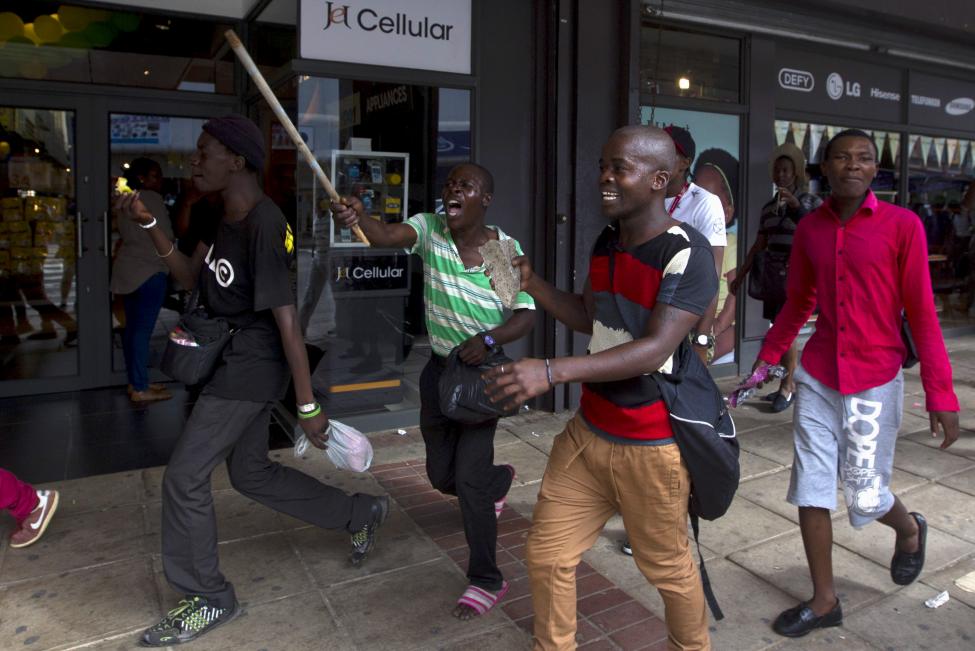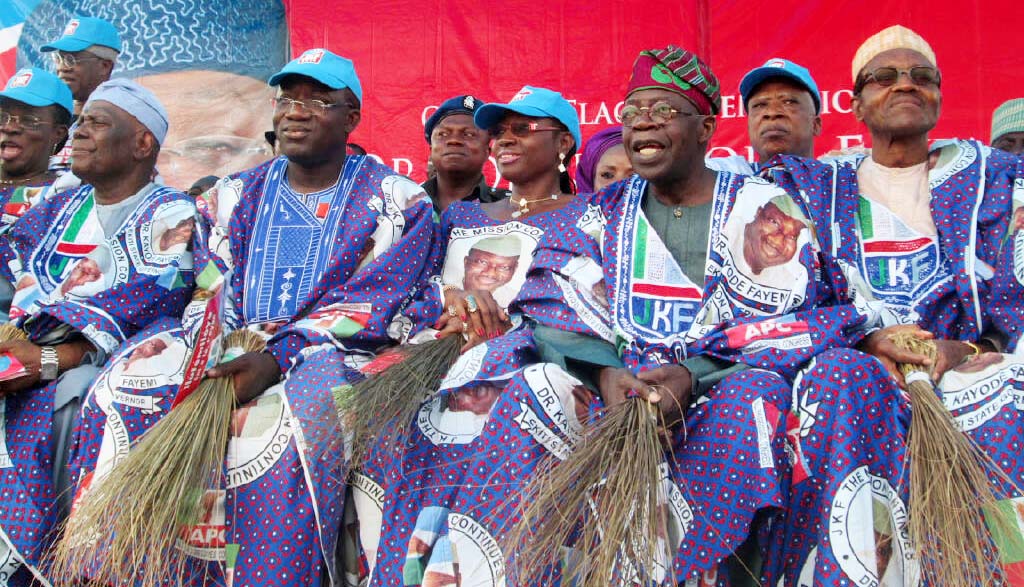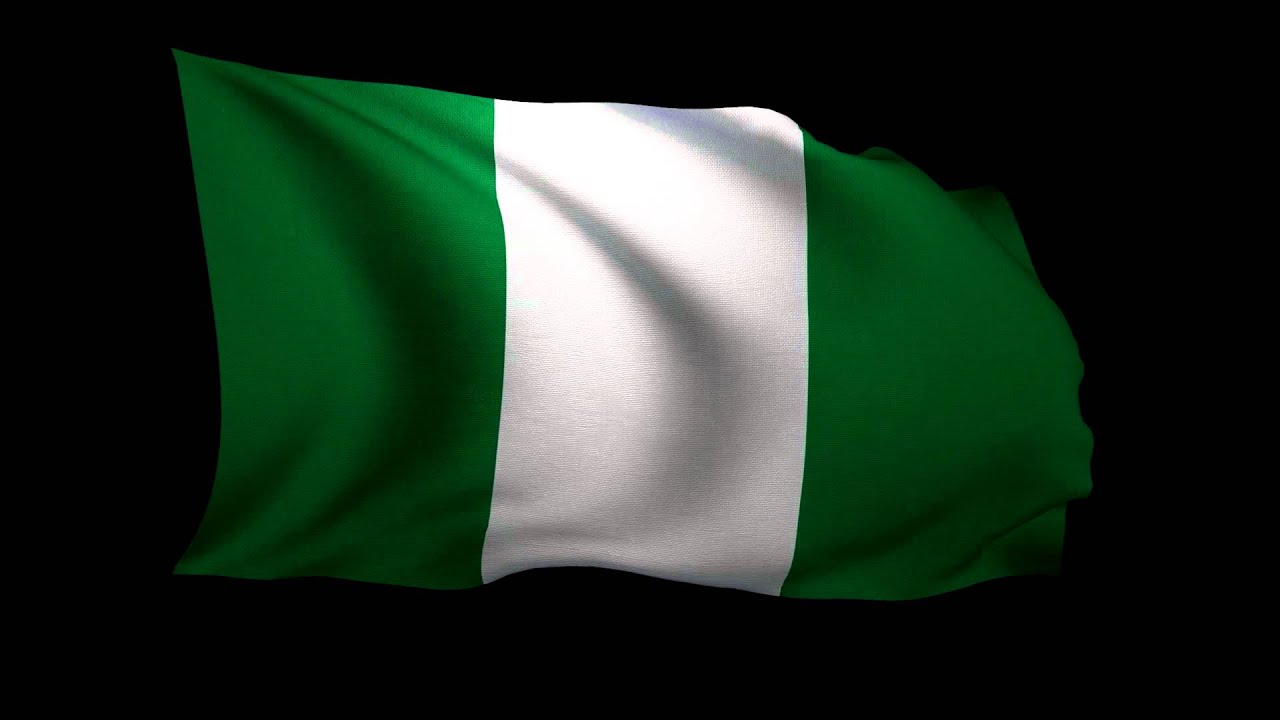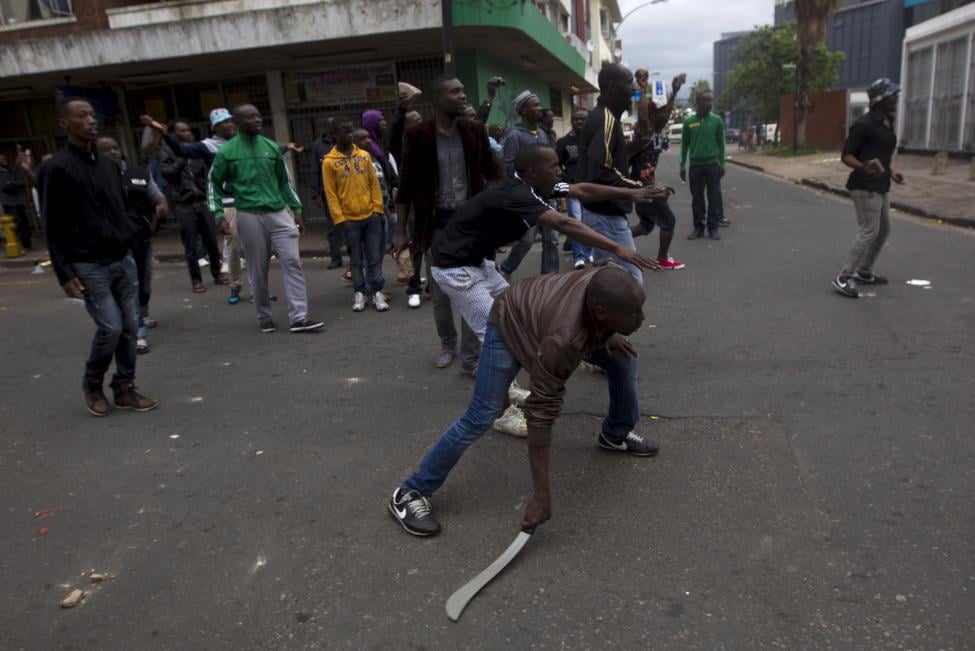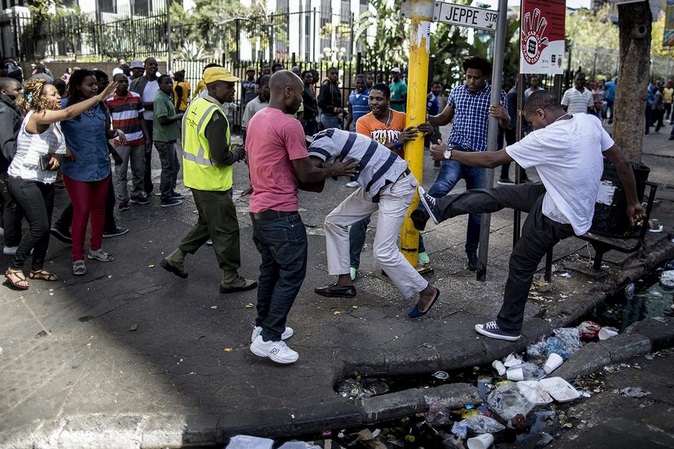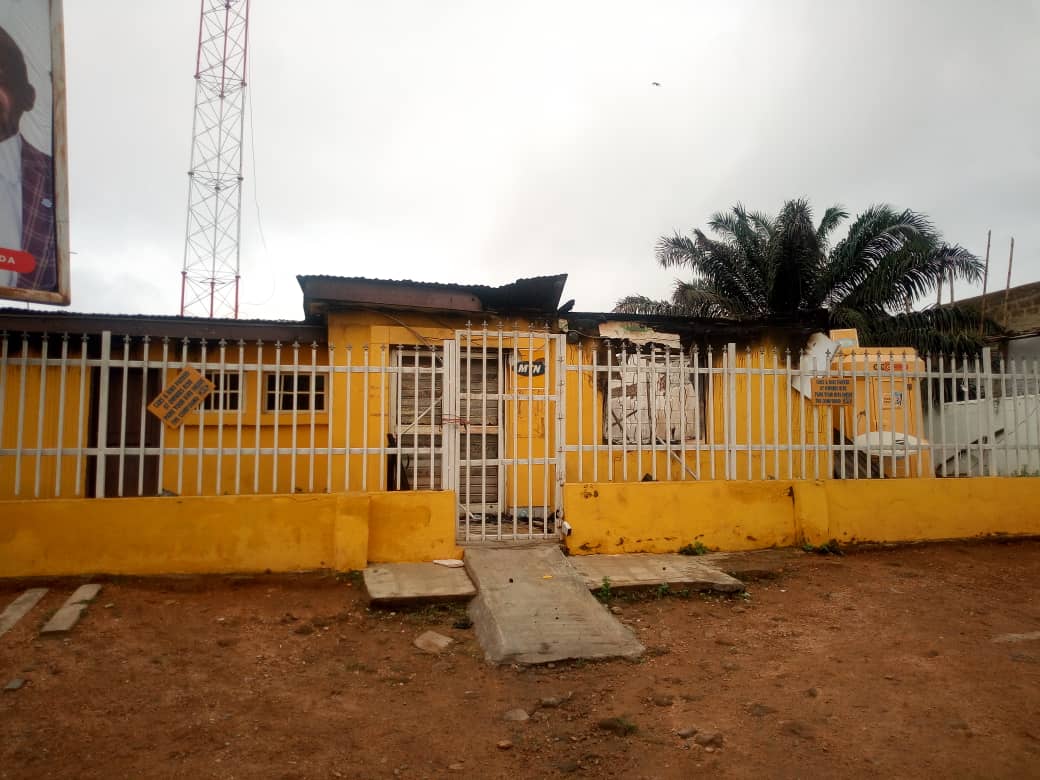South African men run from police as rioting and looting was quelled during anti-foreigner violence in Durban, April 14, 2015. Reuters/Rogan Ward
One of the most telling summaries of what has been happening in the last few days between South Africa and Nigeria was the comment by columnist, Owei Lakemfa, that the continent’s two largest economies now take orders from the streets.
By Tuesday, five persons had been killed, and many more injured or displaced in South Africa while many small businesses built from years of toil and struggle had been destroyed, some irretrievably.
In reprisal attacks across Nigeria within the last few days, one person was killed and flagship South African businesses, including MTN, and franchises like Shoprite, have suffered losses running into tens of millions of naira from vandalisation or forced closures.
Politicians have been trying to catch up. But after years of trying and failing spectacularly, they are going to have a difficult time convincing moderates – never mind the hawks – on both sides that they are about to do anything new or different to solve the problem.
Advertisement
In the last few days, I have heard otherwise moderate people say that if South Africa stops the killings, it would not be because President Muhammadu Buhari met with President Cyril Ramaphosa in Japan. Or because Buhari sent a special envoy to Johannesburg or pulled out of the World Economic Forum. It would simply because angry Nigerians said enough is enough, took to the streets and attacked, well, what is supposed to be South African businesses.
But that is wrong. If two wrongs don’t make a right, a third won’t make things any better. And who says the looters on both sides are looting for national pride?
How did we get here?
Advertisement
Attacks on foreigners, especially Africans, in South Africa have been on and off for over two decades and perhaps the most deadly was in 2008 when over 60 foreigners were reportedly killed, many more injured and thousands displaced.
Waves of attacks occurred again and again across South Africa in 2010 and 2015, each one leaving a trail of sorrow, tears and blood.
In one heart-wrenching episode in 2013, a young Mozambican, MidoMacia, was tied to a police van and dragged through the streets close to Johannesburg by police officers for wrong parking. Five years earlier, another Mozambican, EnerstoNhamuavewas beaten, stabbed and set alight by a mob with pictures of the ‘burning man’ searing the conscience of South Africa and the world.
After Nhamuave, one Nigerian man, Nkemjika, shot in the leg by South African police and detained for 18 months only for the authorities to discontinue his case for lack of evidence, considered his own travail small potato.He claimed he was shot for refusing to indulge the notorious bribe-for-residency. Many other Nigerians, caught in the crosshairs of xenophobia, are not alive to tell their own stories.
Advertisement
I don’t know what the South African authorities thought as these cases mounted but it appears they thought it was something that would disappear. Or perhaps they were too ashamed to discuss it openly and take action.
They filed it away with the convenient label of criminality. When the world called theplague xenophobia, which was it was, former President Thabo Mbeki and even Jacob Zuma after him, insisted that it was criminality.
Yet, it was something worse.A few ranking officials have contributed in no small measure to stoke the fires. In a not-too-recent video, for example, a deputy chief of police officer claimed at a press conference that foreigners comprised over 80 per cent of residents in Hillsbrow,a South African community, adding that at that rate of displacement, it would not be long before the entire country would be taken over by foreigners.
His claim was later fact-checked as false, but he had done exactly what he wanted to do – fueled the embers of xenophobic hatred against immigrants in the communities.In the past, Johannesburg’s Mayor Herman Mashaba also piled on the pressure when he said illegal immigrants were largely responsible for the crimes in their communities.
Advertisement
If street folks had any doubts about the source of all their problems, some ranking members of the South African political class have had no hesitation telling them that immigrants, especially Africans, are responsible for the crimes and drugs on the streets – and also, for taking their jobs and for running them out of their corner shops.
A report by Human Rights Watch released in March, said not a single person involved in xenophobic attacks since 1994 has been prosecuted. It accused South Africa of “lack of accountability for xenophobic crimes” and called for a change of attitude.
Advertisement
The picture of the scale of malicious negligence becomes even clearer in a report by African Centre for Migration and Society which between 1994 and 2018, documented 529 xenophobic incidents, with 309 deaths, hundreds more injured and displaced and 2,193 shops looted.
While the casualties range from Zimbabweans to Somalis and from Mozambicans to immigrants from Lesotho and Ghana, Nigerians appear to have been targeted with exceptional venom. The latest round of violence, for example, was sparked by a report that a cab driver had been killed by a Nigerian – which turned out to be false, but by then the fallout had ricocheted across the affected community.
Advertisement
Many Nigerians have been asking the question, why us? Yes, in the 1980s we kicked Ghanaians out (much to Nigeria’s loss and regret later), but we did not set the fleeing Ghanaians alight with tyre necklaces. Nigerians understand the so-called “apartheid legacy”, a phrase sometimes used to explain the resentment/aggressive, and sometimes, violent attitude in urban South Africa. We also understand that joblessness in South Africa is currently at 29 per cent and, in fact, worse in some townships.
But we expect that South Africa will remember. How can they forget Nigeria’s extra-ordinary sacrifice during apartheid and fail, in return, to honour the spirit of ubuntu?We expect that blacks who lead the violent charge against black immigrants (who are less than two million) will remember, like Trevor Noah said, that black folks control less than 0.00001 per cent of South Africa’s wealth.
Advertisement
Why us? The answer is in Nigeria’s mirror. Older South African folks who ought to know better may be stoking the xenophobic flames, but their foot soldiers,mostly in their mid-20s, were born after apartheid. Nigeria’s frontline role may be a good piece of romantic history, but what today’s South African teenagers and those in their 20s see is a weak, staggering giant, unable to maintain its stride or lead.
What South Africa’s youth see or remember is not Nigeria’s apartheid heroism; it’s our nearly hopeless struggle, for example, to rescue over 200 Chibok school girls kidnapped by Boko Haram and our request for help from South African mercenaries to deal with the menace, even shipping cash by plane loads. They see our catastrophic descent into our religious and tribal corners and the loss of a sense of national pride.
What they remember is not our apartheid heroism but hundreds of young Nigerians fleeing the country, preferring to die in the desert or at sea or to escape by any other means, rather than staying back in the country.
What they see in Nigeria’s mirror is why we’re such an easy target.
South Africa’s youth leader, Julius Malema, has proved to be an exception in speaking out for ubuntu. I only disagree with the sharp outer edges of his view that tend to suggest that it is OK to replace white oppression with black oppression. Oppression is colour blind.
Between Malema and the deniers hiding in plain sight of criminality, however, South Africa’s political leadership needs to demonstrate that it is serious about dealing with xenophobia. ANC is running out of steam and dangerously so.Jacob Zuma’s larcenous years have only eroded the dream of a secure, prosperous country promised in 1994.
South Africa appears to be fighting for its future, but it’s taking on the wrong enemies. Among other things,the authorities must now crackdown on hate crimes, review the country’s broken immigration system and create more opportunities in the townships. Politicians must take responsibility.
Why us? Because the attackers believe they can get away with it and on top of that, years of slide, mismanagement and failing leadership have sent the message to South Africa, and unfortunately to many parts of the world, that the Nigerian is your inconsequential target.
It’s a long walk to take back our country from the street.
Ishiekwene is the managing director/editor-in-chief of The Interview and member of the board of the Global Editors Network.
Views expressed by contributors are strictly personal and not of TheCable.
Add a comment

